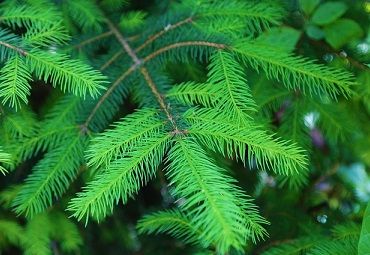Diseases such as stomach inflammation and intestinal cancer could be prevented by something as humble as a bacteria that lives on plants.
Researchers at the bioengineering department of the Technical University of Denmark (DTU) have discovered that certain bacteria in our intestines have a particular liking for fibres from pine trees, reports Ingeniøren.
The bacteria convert the fibres to butyric acid – a biologically active compound in humans.
A gut feeling
It is likely that these pine tree prebiotics – non-digestible food ingredients that promote the growth of beneficial microorganisms in the intestines – can help the body to resist various types of inflammation and may also be beneficial against stomach cancer.
“Biologically-speaking, these are very interesting bacteria because they can have great relevance for our health and maybe also for farming if, for example, they can be added to foods,” said Professor Maher Abou Hachem from DTU.
The bacteria that seem to be especially interested in the fibres from pine trees are called Roseburia intestinalis and make up 3-5 percent of the intestinal flora of most humans.
















